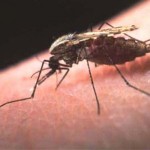
Hilary Ranson, The Liverpool School of Tropical Medicine
Pyrethroid insecticides are the front line weapon of choice against malaria-carrying mosquitos.
These are the only class of insecticide that can be used to treat bednets and they are being used extensively for indoor spraying (replacing DDT in many areas). These two interventions are being rolled out on a massive scale across Africa (the goal is to achieve 80% coverage).
Alternative insecticides are available, but it currently requires time-consuming testing to work out whether they are needed to tackle resistant mosquitoes in a particular area.
Hilary Ranson and her colleagues from The Liverpool School of Tropical Medicine, have discovered genetic markers for resistance which will allow a simple genetic test on small numbers of mosquitoes to track resistance. They are also working on ways to enhance insecticide delivery—adding chemicals which boost the performance of the insecticides.
Abstract
Resistance to pyrethroid insecticides is now widespread in the Anopheles mosquitoes that transmit malaria. Given the reliance on bednets, impregnated with pyrethroid insecticides, for malaria control in Africa, the evolution and spread of resistance is a major threat to human health.
Unfortunately, for reasons that will be discussed, traditional resistance management strategies can not be readily enforced to limit the spread of this resistance.
Therefore alternative approaches are needed. Our research aims to elucidate the molecular basis of insecticide delivery, metabolism and excretion in the mosquito with the goal of developing insecticide synergists that will interfere with these pathways and increase the potency of insecticides. Such synergists could be incorporated into insecticide formulations to restore the efficacy of malaria vector control

